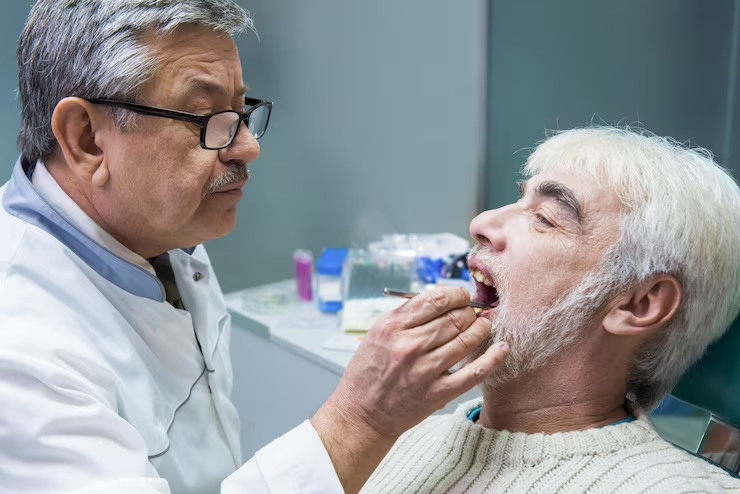Do you find your under-eye area darkened? Can you differentiate if these are dark circles or hyperpigmentation under your eyes?
Many people struggle with dark circles and hyperpigmentation under their eyes, often finding it challenging to understand their differences. Although these conditions appear similar, they have distinct causes and treatments.
This blog explores the differences between dark circles and hyperpigmentation under the eyes, their causes, treatment options and additional prevention tips to help you achieve brighter under eyes that add to your natural beauty.
What Are Dark Circles?
Dark circles are the darkened areas that form under the eyes. They often give a tired and aged appearance, which can be frustrating. Their causes include:
-
Lack of Sleep
One of the most common causes of dark circles is insufficient sleep. When you don’t get enough rest, the skin under your eyes can appear dull and pale, making the blood vessels beneath more visible.
-
Genetics
Dark circles can also be hereditary. If your parents or grandparents have dark circles, you may be more likely to develop them yourself.
-
Ageing
As we age, our skin becomes thinner, and collagen content is lost. This makes the blood vessels under the eyes more noticeable, leading to dark circles.
-
Dehydration
Not drinking enough water can dull and sunken the skin under your eyes, highlighting dark circles.
What Is Hyperpigmentation Under the Eyes?
Hyperpigmentation is the darkening of the skin due to excess melanin production (a substance that gives colour to your skin). It can often be mistaken for dark circles when it occurs under the eyes. However, hyperpigmentation has different causes, including:
-
Sun Exposure
Excessive exposure to the sun can increase melanin production, leading to darker skin under the eyes.
-
Inflammation
Any inflammation or irritation around the eyes can trigger an increase in melanin production, causing hyperpigmentation.
-
Hormonal Changes
Hormonal ups and downs, such as those experienced during pregnancy or due to certain medical conditions, can lead to hyperpigmentation under the eyes.
-
Certain Medications
Some medications can cause hyperpigmentation as a side effect. If you notice darkening under your eyes after starting a new medication, consult your doctor.
How to Treat Dark Circles
Treatment options for dark circles include:
-
Adequate Sleep
Ensure you get enough sleep every night. Aim for 7-9 hours of quality sleep to help reduce the appearance of dark circles.
-
Hydration
Drink plenty of water throughout the day to stay well-hydrated. This helps maintain skin health and reduces the visibility of dark circles.
-
Cold Compress
Applying a cold compress to your eyes can reduce puffiness and shrink widened blood vessels, which can help reduce dark circles.
-
Vitamin C Serum
Vitamin C has skin-brightening properties and reduces darkness under the eyes. Using a vitamin C serum can improve the skin’s overall texture and tone under the eyes.
-
Dark Circle Corrector
Using the best dark circle corrector serum can make a significant difference. Look for products with ingredients like hyaluronic acid, retinol, and peptides, which can help plump the skin, reduce discolouration, and improve skin elasticity.
How to Treat Hyperpigmentation Under the Eyes
-
Sun Protection
Wear sunscreen with at least SPF 30 to protect your skin from the sun, even on cloudy days. Sunglasses can also protect the sensitive skin around your eyes from harmful UV rays.
Brightening Creams
- Use brightening creams containing kojic acid, niacinamide, and liquorice extract. These ingredients help reduce melanin production and lighten hyperpigmented areas.
-
Chemical Peels
Chemical peels exfoliate the skin and reduce the appearance of hyperpigmentation. Consult a dermatologist to determine the best type of peel for your skin.
-
Laser Treatments
Laser treatments can target hyperpigmented areas and break down excess melanin. For the best results, this treatment is performed by an expert practitioner.
-
Vitamin C Serum
Does vitamin C help with hyperpigmentation? Yes, it does! Vitamin C serums can help with dark circles and effectively treat hyperpigmentation around the eyes, as they have antioxidant properties that help reduce melanin (the substance that gives colour to your skin) production and brighten the skin.
Preventing Dark Circles and Hyperpigmentation
Here are some some prevention tips for you:
-
Maintain a Healthy Diet
A balanced diet rich in vitamins and minerals can promote healthy skin. Foods high in vitamins C and E and antioxidants can help improve skin health and reduce the risk of dark circles and hyperpigmentation.
-
Regular Skincare Routine
Establish a regular skincare routine that includes cleansing, moisturising, and applying sunscreen daily. It can also be beneficial to use products specifically formulated for the delicate skin around your eyes.
-
Avoid Rubbing Your Eyes
Rubbing your eyes can cause irritation and inflammation, leading to dark circles and hyperpigmentation. Be gentle when touching the area around your eyes.
-
Manage Stress
Stress can impact your overall health, including your skin. To keep your skin looking its best, practice stress management techniques such as meditation, yoga, or deep breathing exercises.
-
Try Hydrocolloid Patches
Hydrocolloid patches are typically used for acne but can also help reduce puffiness and protect the skin under your eyes. They create a moist environment that promotes healing and can prevent further irritation.
Conclusion
Understanding the differences between dark circles and hyperpigmentation under the eyes is crucial to treating them effectively. Whether caused by lack of sleep or sun exposure, vitamin C serums and dark circle-correcting serums can help. Protecting your skin from the sun, living healthily, and seeking personalised advice from eye doctors or skin specialists are also essential. With this understanding, you can take steps to treat each condition effectively, achieving healthier, more radiant skin.











